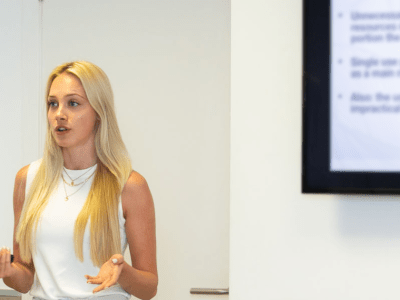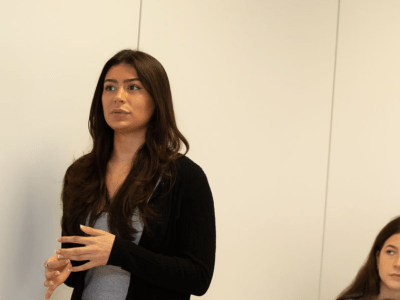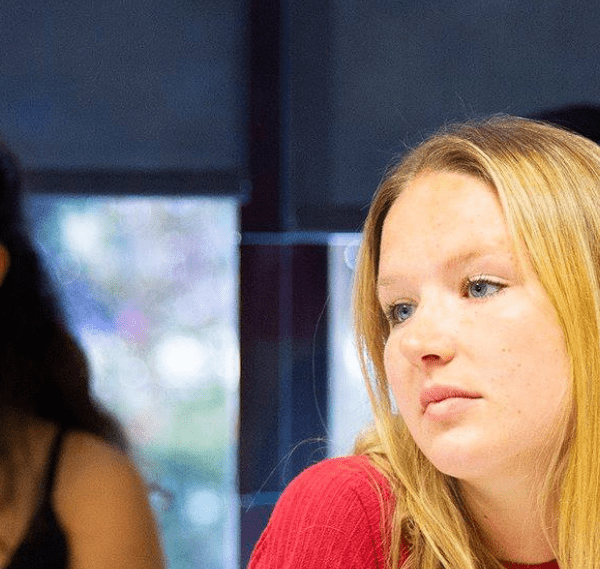How to Improve Critical Thinking Skills
What is critical thinking? According to the World Economic Forum, it’s the 2nd most important skill in the workplace. That means it should be a top priority for anyone planning to forge a career in business.
Critical thinking is the name given to what is, in fact, a bundle of soft skills. In basic terms, it’s the ability to use the power of thought effectively. You may not have a qualification in critical thinking, but you’ll undoubtedly use it in the pursuit of any qualification you do earn!
Most of us spend large parts of our day lost in thought, but are these thoughts useful and rational? Do they help us make real-world improvements to our lives? That’s what critical thinking does. It supports efficient information processing and superior decision-making, which is probably why employers value critical thinking so highly!
If you’re on a mission to tune up your critical thinking skills, read on to learn more about what they entail and practical ways that you can improve them.
Problem-Solving
Problem-solving is really just applied critical thinking. To improve your critical thinking skills, you should practice the problem-solving process: defining and analyzing the issue before generating and evaluating potential solutions.
Challenge:
Identify a small but impactful problem in your life. This could be something like, “I spend too much money on fast food.” Spend time reflecting on what causes this problem. Try to come up with at least three causes.
After you’ve established these, decide on a goal; for example, “I will cook all of my food for the next two weeks.” Then, using the determined causes as inspiration, identify obstacles you might encounter in the pursuit of your goal.
Look for ways you can anticipate and overcome these obstacles. For example, if you buy too much fast food because you’re often running late to work, you might decide to set your alarm an hour earlier to avoid this issue. Rate each solution you come up with in terms of its easiness and likely effectiveness before deciding whether or not to pursue it.
Remember, whether you achieve your goal or not, it’s useful to reflect on your experience. What was more difficult than you expected? How did unpredictable events affect your success?
If you achieve your goal, that’s great, but the purpose of this exercise is to improve your problem-solving skills. You are practicing recognizing the underlying connections between events.
Thought Awareness
To harness the power of thought, we must be aware of how our minds operate. Much of our thinking happens on autopilot, which highlights the importance of developing critical thinking skills. Effective decision-making requires focused attention!
Challenge:
During your daily life, notice when you feel a strong negative emotion such as anger or insecurity. Take a moment to write down the exact events that led to you experiencing this emotion. Where were you? Who were you with? What happened? Write as much as you can about what you were thinking and feeling at that time.
For example, maybe you felt jealous when your friend received a higher grade on an assignment than you did. In this scenario, you might have written down “my friend is better than me” or “I have no chance of achieving success.”
Reframe these thoughts when you’re in a calmer state of mind. For example, you might instead write “my friend’s success does not impact my own,” or “I am disappointed by my own failure to study” once you’ve reflected on the root of the emotion.
Look at the thoughts you transcribed in anger and compare them to the reframed thoughts, composed in a state of peace. Which ones would lead you to more effective actions? Keep practicing the recognition and reframing of unhelpful thoughts based on emotional triggers instead of reality.
Boundary Expansion
Different people and new circumstances bring fresh perspectives. If we remain in our cultural comfort zone, it can be difficult to improve our critical thinking skills. Instead, we should actively seek out ideas that challenge us.
Challenge:
Perform an audit of the media that you consume on a routine basis. Notice which perspectives are over- or underrepresented. Do you only read books written by authors from your own country? Are you less likely to watch a foreign movie or follow someone on social media with a different religious background?
Choose one blind spot in your media consumption and pledge to spend two weeks expanding your boundaries in this direction. Find books, movies, social media accounts, and music coming from a perspective you know little about.
As you consume this media, pay attention to new knowledge that you gain. Compare what you thought you knew before this experiment to what you know now; you may find that you’ve unlearned or changed your mind about some perceptions.
All of us suffer from unconscious bias to some degree, but engaging in conscious processes of education and boundary expansion reduces the risk that we become lazy or overinvested in our assumptions.
Evaluation and Prediction
We know the relationship between cause and effect, but sometimes there are more stops on the way between the two! Pay close attention to how you receive data and turn this into a belief. You can improve your critical thinking skills by understanding what informs your predictions.
Challenge:
Halfway through a mystery book or movie, pause and evaluate what has happened so far. Create a timeline of events and record everything that you think is important to the outcome of the plot.
Consider: What clues have been revealed? What are your suspicions so far? What are your impressions of each character, and are these impressions based on fact, assumption, or external bias?
Using this information, predict how the book or movie will end. You can then finish it and make a comparison. Note the information you prioritized and what information you missed while making your prediction: this could reveal a lot about how you process information.
The point is not that you should perfectly guess the plot; after all, mysteries are designed to surprise the audience! However, this activity reveals the hidden process behind a prediction. The ability to make predictions based on facts is fundamental to critical thinking.
Every challenge suggested here is designed to be repeatable. So, to really improve your critical thinking skills, revisit them regularly!










